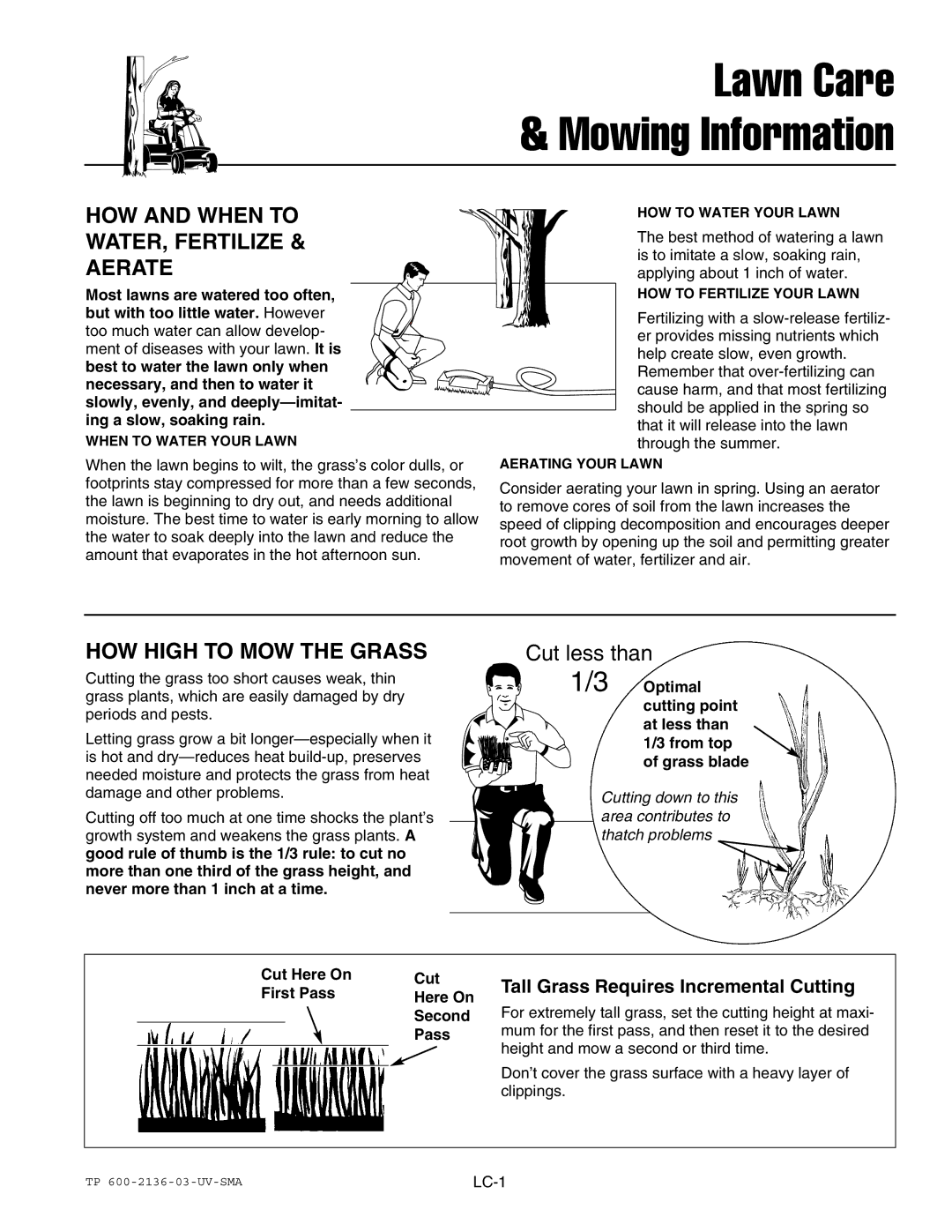
| Lawn Care | |
| & Mowing Information | |
HOW AND WHEN TO | HOW TO WATER YOUR LAWN | |
WATER, FERTILIZE & | The best method of watering a lawn | |
AERATE | is to imitate a slow, soaking rain, | |
applying about 1 inch of water. | ||
Most lawns are watered too often, | HOW TO FERTILIZE YOUR LAWN | |
but with too little water. However | Fertilizing with a | |
too much water can allow develop- | ||
er provides missing nutrients which | ||
ment of diseases with your lawn. It is | ||
help create slow, even growth. | ||
best to water the lawn only when | ||
Remember that | ||
necessary, and then to water it | ||
cause harm, and that most fertilizing | ||
slowly, evenly, and | ||
should be applied in the spring so | ||
ing a slow, soaking rain. | ||
that it will release into the lawn | ||
WHEN TO WATER YOUR LAWN | ||
through the summer. | ||
When the lawn begins to wilt, the grass’s color dulls, or | AERATING YOUR LAWN | |
footprints stay compressed for more than a few seconds, | Consider aerating your lawn in spring. Using an aerator | |
the lawn is beginning to dry out, and needs additional | ||
to remove cores of soil from the lawn increases the | ||
moisture. The best time to water is early morning to allow | ||
speed of clipping decomposition and encourages deeper | ||
the water to soak deeply into the lawn and reduce the | ||
root growth by opening up the soil and permitting greater | ||
amount that evaporates in the hot afternoon sun. | ||
movement of water, fertilizer and air. | ||
|
HOW HIGH TO MOW THE GRASS
Cutting the grass too short causes weak, thin grass plants, which are easily damaged by dry periods and pests.
Letting grass grow a bit
Cutting off too much at one time shocks the plant’s growth system and weakens the grass plants. A good rule of thumb is the 1/3 rule: to cut no more than one third of the grass height, and never more than 1 inch at a time.
Cut less than
1/3 Optimal cutting point at less than 1/3 from top of grass blade
Cutting down to this area contributes to
thatch problems
Cut Here On | Cut |
First Pass | Here On |
Second
Pass
Tall Grass Requires Incremental Cutting
For extremely tall grass, set the cutting height at maxi- mum for the first pass, and then reset it to the desired height and mow a second or third time.
Don’t cover the grass surface with a heavy layer of clippings.
TP |
